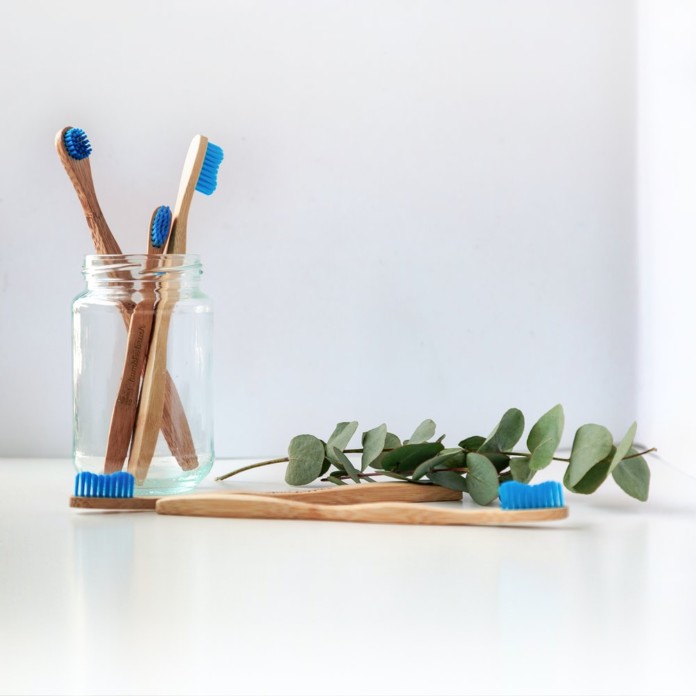You brush your teeth, but you’re starting to feel like that’s not enough to keep your pearly whites, well, white. It’s not just about having a beautiful smile, though — you want to make sure that your daily oral-care regimen is enough to have good dental hygiene.
As it turns out, you should be doing more than just brushing regularly to keep your dental health in check. Here are seven other ways to improve your dental hygiene regimen.
1. Brush Your Teeth the Right Way
For starters, you already know that you should be brushing your teeth twice daily. The nighttime brushing is particularly important, as it gets rid of plaque and bacteria that have accumulated during the day. You don’t want that that to sit in your mouth overnight – bacterial plaque build-up is the number one cause of gingivitis, after all.
But it’s not just the quantity of brushings — it’s the quality, too. Make sure you know the proper technique for brushing your teeth. Move your toothbrush in a circular motion as you gently brush away plaque, bacteria and debris. Do this for two minutes twice daily, and your dental hygiene will quickly improve.
2. Don’t Just Brush Your Teeth, Though…
It’s not just your teeth that need brushing, you know. After you finish your two-minute teeth-brushing session, turn the tool to your tongue. Yes, your tongue can have plaque build-up, too — if you’re brushing your teeth properly but still have bad breath, your tongue could be the culprit.
So, gently brush your tongue after you finish with your teeth. Do this every time you brush your teeth.
3. Floss It Out
Your dental hygiene arsenal shouldn’t just include a toothbrush and toothpaste. You’ll need dental floss, too.
And it’s not just so that you can pick out the food that’s stuck between your teeth, either. Flossing stimulates the gums, reduces inflammation and removes stuck-on plaque that your brush can’t reach.
Experts recommend that you use 18 inches of dental floss. Hold the majority of it in one hand, but hold the other end in the opposite hand. That way, you can hold the string taut as you slide it in between your teeth. Don’t just stick it in the gaps between teeth, though. Rub it in a C-shape around each tooth so you get rid of as much plaque as possible.
Flossing once daily should be sufficient for most people to get rid of the stuck-on food and bacteria between their teeth.
4. Try Mouthwash, Too
If you really want to fill out your dental hygiene regimen, then consider rounding it out with a swig of mouthwash.
Mouthwash helps clean the areas you can’t reach in your mouth, even with floss. It also contains ingredients that help remineralize your teeth and wick away any acidic particles. Altogether, this strengthens your chompers and bolsters oral hygiene.
You might consider suggesting that your children or elderly parents incorporate mouthwash into their daily oral-care routines, too. It can really help for people whose brushing and flossing isn’t quite hitting the mark.
5. Drink Plenty of Water
Even when you’re not performing your daily dental hygiene routine, you can still take steps to improve your oral health. A major way to do so is by drinking water throughout the day. For one thing, water’s the best beverage for your teeth. Sugary drinks — and sugar in general — feed the bacteria that cause so much damage to your teeth. So, choosing water protects them in the long run.
Water also helps keep your mouth clean by flushing out bacteria, food and other particles with each sip. So, if you drink water all day long, it makes your job of brushing and flossing a bit easier.
6. Embrace the Crunch
You might think that crunchy foods — particularly fruits and veggies — aren’t good for your teeth. But scientists have confirmed that crunchy foods actually improve our oral health. After all, humans evolved while eating much less refined fare than what we get now. Chomping our way through raw produce, for example, is exactly what our teeth are supposed to be doing.
This is especially true for children. You might think it’s a good idea to cut up their food or somehow soften it so it’s gentler on their teeth. However, experts say to let them crunch through fruits and veggies to ensure they develop a strong jaw and teeth.
7. Don’t Skip Your Dentist Visits
When’s the last time you saw a dentist? You should be going for checkups twice a year and, yes, that applies even if you take all of the above pieces of advice on board.
Your dentist can see issues that you might not be able to see or even feel. And they can suggest preventative treatments to avoid something minor becoming a big problem for your oral health. Plus, your visit will include a thorough cleaning, which means you’ll have a clean slate to work with for your brushing and flossing post-check-up.
Smile Your Brightest
With these seven tips in mind, you’ll be well on your way to creating a dental hygiene routine that’s well-rounded and very efficient. So, grab your toothbrush, stock up on floss and mouthwash, drink plenty of water, and call your dentist for an appointment – it’s time to make the best of your smile.




